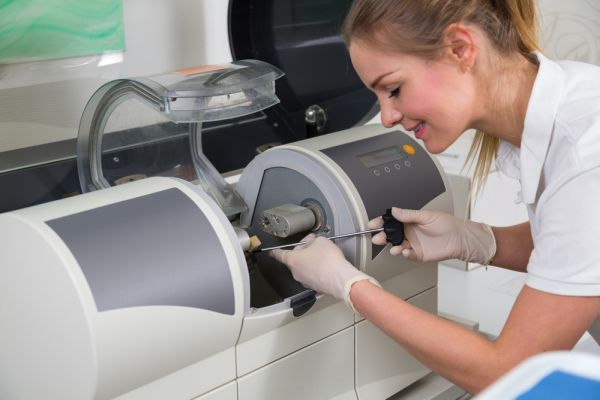5 Ways a Dental Crown Can Help Your Oral Health

A dental crown is a prosthetic covering for the entire tooth structure, from the biting or chewing surface all the way to the gum line. These dental prosthetics serve both cosmetic and medical purposes. If your tooth has suffered structural impairments such as a fracture, crack, severe decay or large filling, the dentist may fabricate dental crowns to protect the tooth from additional damage. It is one of the leading restorations for a damaged tooth.
Every dental crown is custom-made to fit the shape of the affected tooth. Aside from its use for protecting the natural teeth, dental crowns make up part of other dental restorations such as dental implants and bridges. In this article, you will learn about five important ways a dental crown can help with your dental health.
How a dental crown can help
1. Protection against tooth sensitivity
People with extensive tooth damage are prone to tooth sensitivity, a situation where the tooth feels mild to severe pain when it is exposed to extreme temperatures. People with the habit of grinding their teeth may experience enamel degradation over time. The teeth can also erode due to exposure to acid from foods, drinks, bulimia or gastrointestinal acid reflux. Once the nerves of the teeth are exposed, discomfort is inevitable. Dental crowns shield the nerves and stop the pain.
2. Prevent additional damage
If you experience oral trauma that caused a chip or fracture, the tooth may suffer more damage if exposed to biting and chewing forces. Also, large fillings on a tooth can make the teeth weak, since most of the original tooth structure is lost to decay. The dental crown can help protect the tooth and prevent it from falling apart.
3. An important part of dental restorations
Crowns are used with dental implants to fill the gap left by a lost tooth. The alternative for filling such spaces is dental bridges, which are created from prosthetic dental crowns and supported by the crowns on either side of the gap. If the teeth are loose, the dentist may cover the affected teeth and splint them together to ensure better stability. A loose or missing tooth can cause damages to the remaining teeth if restoration is not immediately provided.
4. Reduces the chance of decay
A tooth that is covered with a dental crown is less vulnerable to decay. The materials used in dental crowns can be porcelain or metal, which are both resistant to acids produced by dental plaque. Although without proper oral hygiene, the tooth underneath may suffer decay as plaque accumulates on the gum line, the chances are lower.
5. Resolve cosmetic issues
A dental crown can help mask imperfections on the tooth and improve your smile’s appearance. The dentist may apply a crown to hide severe stains and discoloration. Porcelain crowns are usually preferred because they give the luster and color of the natural teeth.
In summary
The benefits of the dental crown to your oral health are numerous. If you think you might be a candidate for this restoration, contact your dentist for a consultation.
Request an appointment here: http://www.desalvodental.com or call DeSalvo Dental at (201) 244-7658 for an appointment in our Englewood office.
Check out what others are saying about our dental services on Yelp: Dental Crowns and Dental Bridges.
Recent Posts
Curious about dental crowns? Read on to learn more about this type of restoration. If a dentist determines that you need a dental crown, there are several reasons why they may make that suggestion. A crown is a common dental restoration to cover and protect a tooth with compromised structural integrity. Their natural appearance and…
A person’s smile is one of the first things that they show off to the world, and a dental crown is one way to bolster that smile and restore teeth that may have sustained damage or blemishes. Dental crowns look similar to natural teeth, so no one will be able to tell at a glance…
Picking the right dental crowns might be hard, which is why you should understand a few questions to ask. If you want a cosmetic procedure, it might be even harder to choose the process for you. But if you do your research first, you can make the most informed decision possible. Keep reading to find…
A dental crown is a restoration that completely covers a tooth above the gumline. It is often used to protect or restore a damaged or decayed tooth. A crown can also help to address a variety of other issues. Read on to find out more about how a dental crown can protect your tooth.Dental crowns…


